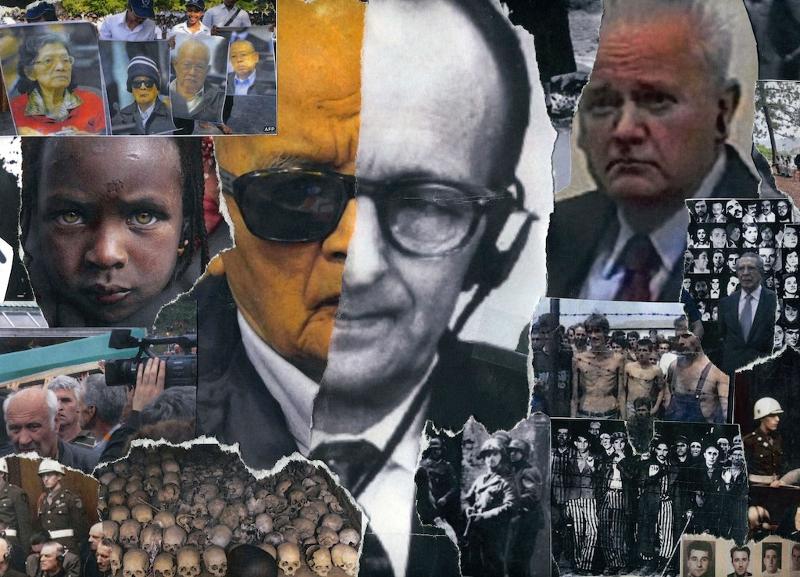The startled reaction to the news that Michael Karkoc, an alleged former Nazi is living in Northeast Minneapolis is understandable. To have a Nazi in our midst is unsettling and leads to the larger question of how it is possible for someone who (if found guilty of war crimes) could have lived in the Twin Cities for 70 years undetected.
Archive: Jun 2013
Resurgent Antisemitism: Global Perspectives
Edited by Alvin H. Rosenfeld
 Dating back millennia, antisemitism has been called “the longest hatred.” Thought to be vanquished after the horrors of the Holocaust, in recent decades it has once again become a disturbing presence in many parts of the world. Resurgent Antisemitism presents original research that elucidates the social, intellectual, and ideological roots of the “new” antisemitism and the place it has come to occupy in the public sphere. By exploring the sources, goals, and consequences of today’s antisemitism and its relationship to the past, the book contributes to an understanding of this phenomenon that may help diminish its appeal and mitigate its more harmful effects.
Dating back millennia, antisemitism has been called “the longest hatred.” Thought to be vanquished after the horrors of the Holocaust, in recent decades it has once again become a disturbing presence in many parts of the world. Resurgent Antisemitism presents original research that elucidates the social, intellectual, and ideological roots of the “new” antisemitism and the place it has come to occupy in the public sphere. By exploring the sources, goals, and consequences of today’s antisemitism and its relationship to the past, the book contributes to an understanding of this phenomenon that may help diminish its appeal and mitigate its more harmful effects.
 In August 1941, Winston Churchill noted that, while confronted with the atrocities that his intelligence services had discerned in Europe, the world was faced “with a crime without a name.” The second World War marked efforts to define atrocities and mold cultural memory by distinct institutions, such as the media, judiciary and academia; each of which continue to offer their own unique but overlapping framing.
In August 1941, Winston Churchill noted that, while confronted with the atrocities that his intelligence services had discerned in Europe, the world was faced “with a crime without a name.” The second World War marked efforts to define atrocities and mold cultural memory by distinct institutions, such as the media, judiciary and academia; each of which continue to offer their own unique but overlapping framing.
Resurgent Antisemitism: Global Perspectives
Edited by Alvin H. Rosenfeld
 Dating back millennia, antisemitism has been called “the longest hatred.” Thought to be vanquished after the horrors of the Holocaust, in recent decades it has once again become a disturbing presence in many parts of the world. Resurgent Antisemitism presents original research that elucidates the social, intellectual, and ideological roots of the “new” antisemitism and the place it has come to occupy in the public sphere. By exploring the sources, goals, and consequences of today’s antisemitism and its relationship to the past, the book contributes to an understanding of this phenomenon that may help diminish its appeal and mitigate its more harmful effects.
Dating back millennia, antisemitism has been called “the longest hatred.” Thought to be vanquished after the horrors of the Holocaust, in recent decades it has once again become a disturbing presence in many parts of the world. Resurgent Antisemitism presents original research that elucidates the social, intellectual, and ideological roots of the “new” antisemitism and the place it has come to occupy in the public sphere. By exploring the sources, goals, and consequences of today’s antisemitism and its relationship to the past, the book contributes to an understanding of this phenomenon that may help diminish its appeal and mitigate its more harmful effects.
 In August 1941, Winston Churchill noted that, while confronted with the atrocities that his intelligence services had discerned in Europe, the world was faced “with a crime without a name.” The second World War marked efforts to define atrocities and mold cultural memory by distinct institutions, such as the media, judiciary and academia; each of which continue to offer their own unique but overlapping framing.
In August 1941, Winston Churchill noted that, while confronted with the atrocities that his intelligence services had discerned in Europe, the world was faced “with a crime without a name.” The second World War marked efforts to define atrocities and mold cultural memory by distinct institutions, such as the media, judiciary and academia; each of which continue to offer their own unique but overlapping framing.
